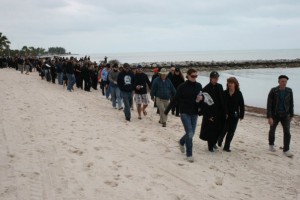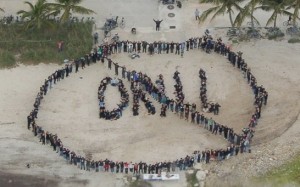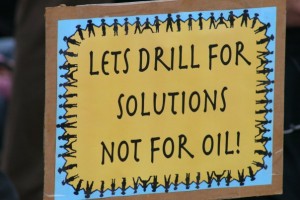http://www.ogj.com/index/article-display/0873419187/articles/oil-gas-journal/general-interest-2/government/2010/02/obama-reaffirms_pledge/QP129867/cmpid=EnlDailyFebruary252010.html
Oil and Gas Journal Feb 24, 2010
Nick Snow
OGJ Washington Editor
WASHINGTON, DC, Feb. 24 — Repeating a point that he made in his State of the Union address on Jan. 27, US President Barack Obama told business executives that his administration is willing to make tough decisions on opening new offshore areas for oil and gas development.
“A competitive America is also America that finally has a smart energy policy,” the president said in a Feb. 24 address to the Business Roundtable in Washington. “We know there’s no silver bullet here. We understand that to reduce our dependence on oil and the damage caused by climate change, we’re going to need more production in the short term, we’re going to need more efficiency, and we need more incentives for clean energy.”
He said that funding under the 2009 Economic Recovery Act already has helped jump-start the US clean energy industry with an investment which will lead to 720,000 jobs in that business by 2012. He also cited administration efforts to make homes and businesses more energy-efficient, loan guarantees to construct the first new US nuclear power plant in decades, and support for three of the world’s largest solar plants.
“And I’ve said that we’re willing to make tough decisions about opening up new offshore areas for oil and gas development,” Obama continued. “So what we’re looking at is a comprehensive strategy, not an either/or strategy but a both/and strategy, when it comes to energy.” But to actually make the transition to a clean energy economy, it will be necessary to put a price on carbon pollution, he added.
Bills including imposition of a cap-and-trade system which passed the full US House and the US Senate Environment and Public Works Committee in 2009 have drawn criticism for their treatment of oil refiners, chemical plants, and other large industries, which Obama acknowledged. “I am sympathetic to those companies that face significant potential transition costs, and I want to work with this organization and others like this to help with those costs and to get our policies right,” he said.
“What we can’t do is stand still,” the president maintained. “The only certainty of the status quo is that the price and supply of oil will become increasingly volatile, [and] that the use of fossil fuels will wreak havoc on weather patterns and air quality. But if we decide now that we’re putting a price on this pollution in a few years, it will give businesses the certainty of knowing they have the time to plan for the transition.”


